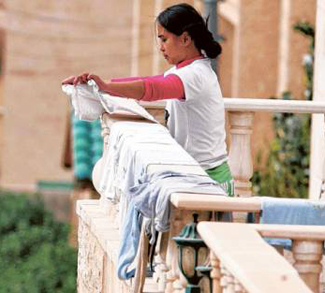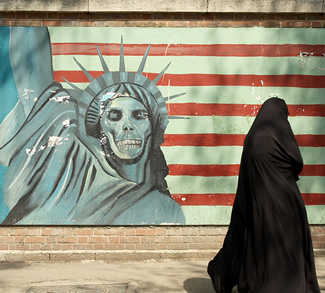At the International Labour Organization (ILO) 100th Annual Conference on June 16, the ILO adopted the Convention on Decent Work for Domestic workers.
This convention outlines a set of minimum standards for decent working conditions regarding domestic workers, while simultaneously demanding that governments protect the human and labour rights of domestic workers. This Convention is an incredible step forward for workers and women across the world.
The ILO estimates that are about 52.6 million domestic workers globally, 43.6 million are women. 7.5% of all female wage employment is estimated to belong to this category worldwide. Up till now there has been no attempt to regulate this industry. This is in part because domestic work is seen as belonging to the private sphere and thus best handled behind closed doors. Nevertheless, the lack of regulation has allowed many domestic workers to experience violence, oppression and exploitation on an almost daily basis. The adoption of this Convention will establish international guidelines for the treatment of domestic workers and is a victory for women on an international scale.
Reports of Human rights violations against migrant domestic workers have been widespread. There are several reasons why domestic workers are vulnerable to violence. Many countries for example have strict migration policies that tie domestic workers exclusively to the host family. The US Campaign for Migrant Domestic Workers Rights has extensively reported on the abuse domestic workers experience in the United States, specifically the abuse domestic workers experience at hands of employees of international organizations such as the IMF and the World Bank. US G-5 visas attach the employment of domestic workers exclusively to employees of international organizations and diplomats and foster a highly unsymmetrical employee relation. Human Rights Watch discovered that these women worked up to 19 hours per day and were often paid less than $100 per month. Many were not allowed to leave the house unsupervised and some were physically or sexually abused. If this is the reality for employees of the highest ranking officials in the world, it is shattering to imagine the conditions of domestic workers living with employees that face no public pressure, in places without any regulatory system for these abuses. While the experience of domestic workers varies greatly, the extensive reports of abuse have led some observes to question whether the migrant status of women has contributed to the violence.
It appears that migration policies adopted by countries recruiting domestic workers encourage this treatment. A combination of interviews with host families and placement agencies by the renowned scholar Bridget Anderson reveals that employees choose migrant domestic workers in part because of their migratory status. The interviews carried out by Anderson revealed that migrant labour helped private households manage their relationship with domestic workers and were used to justify the exploitative conditions that workers experienced. While interview participants used race interchangeably with culture and nationality, it was women’s ‘foreignness’ that helped host families manage employment relations. Not only did many participants express a deep discomfort with managing someone of their own ethnicity, they depicted their relationship with the worker as benign and as one of mutual dependence. By constructing an impoverished foreign subject in need of employment, host families create a relationship of mutual dependence that overlooked the exploitative conditions of the worker. Sexual abuse of domestic workers was similarly justified by their inferior social, racial and migrant status. Thus, governments by setting strict conditions on domestic workers’ entry into the country and tying their stay exclusively to the host families that requested their entry are nurturing these oppressive relations that can lead to terrible human rights violations.
It took the ILO 63 years to adopt the Convention on Decent Work for Domestic workers as many governments and employers fought hard against this resolution. While domestic workers recruited from developing countries have allowed women in richer countries to seek employment, this transfer of work has been often been accompanied with racism, coercion and violence. The recognition of the ILO that host governments are responsible for upholding the rights of migrant domestic workers is the first step to acknowledging the great contributions domestic workers have made to our economies, our households, to the wellbeing of our elders and children and to our communities on an international scale.




